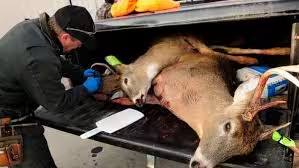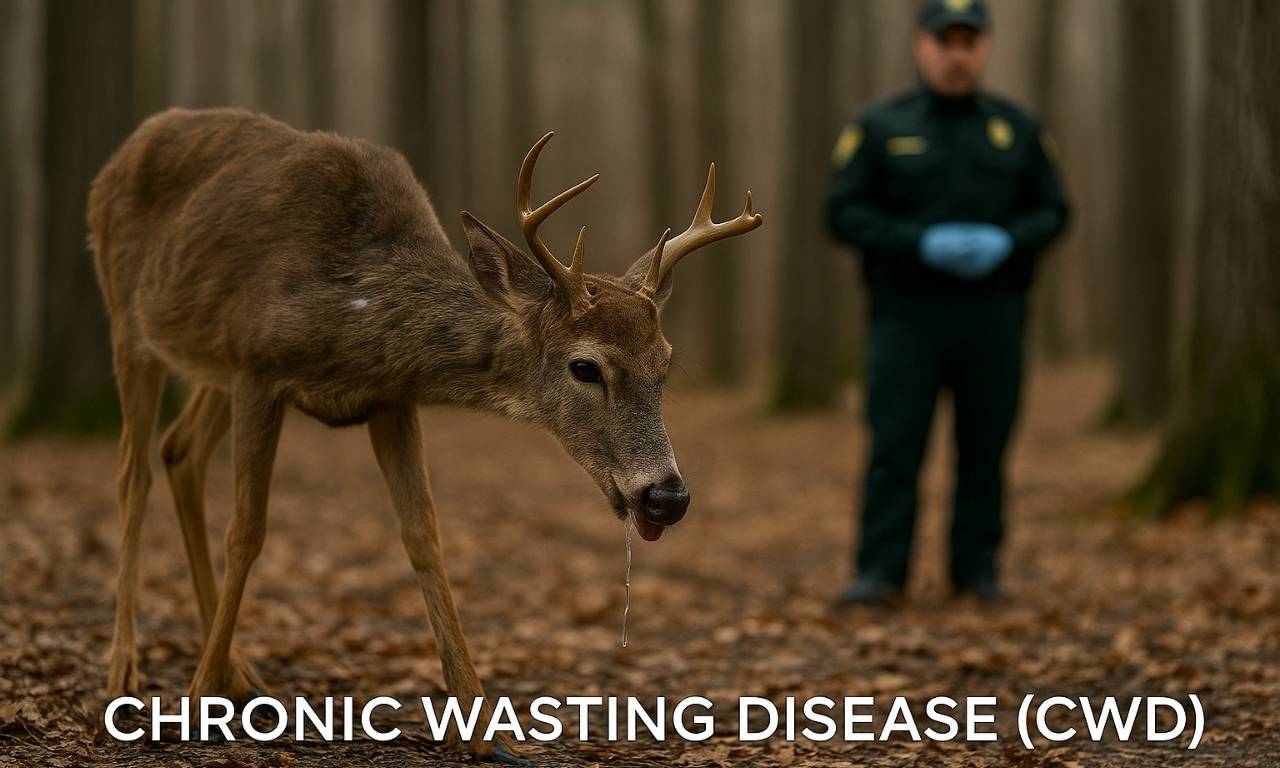Health officials in Florida (USA) have recently confirmed new cases of Chronic Wasting Disease (CWD), popularly called Zombie Deer Disease, raising concerns about its potential spread and ecological impact.
About Chronic Wasting Disease
Chronic Wasting Disease (CWD) is a progressive, fatal neurological disorder that primarily infects deer, elk, moose, and reindeer. It is part of a group of diseases known as transmissible spongiform encephalopathies (TSEs), similar to mad cow disease (BSE) in cattle.

Cause and Transmission
- Causative Agent: CWD is caused by prions, which are abnormally folded proteins that lack DNA or RNA.
- These prions induce other normal brain proteins to misfold, resulting in brain tissue degeneration.
- Mode of Transmission: The disease spreads through body fluids (saliva, blood, urine, feces) and can also contaminate soil, plants, and water, remaining infectious for years.
- Persistence: Once introduced, prions are extremely resistant to heat and disinfectants, making environmental control difficult.
Symptoms
- Long incubation period of 18–24 months.
- Weight loss, loss of coordination, drooling, lethargy, and lack of fear of humans are typical signs.
- The disease ultimately leads to severe brain damage and death.
Treatment and Human Risk
- There is no cure or vaccine for CWD.
- So far, no confirmed human cases exist, but health authorities advise avoiding consumption of infected animal meat due to potential risks.
This topic is available in detail on our main website.





